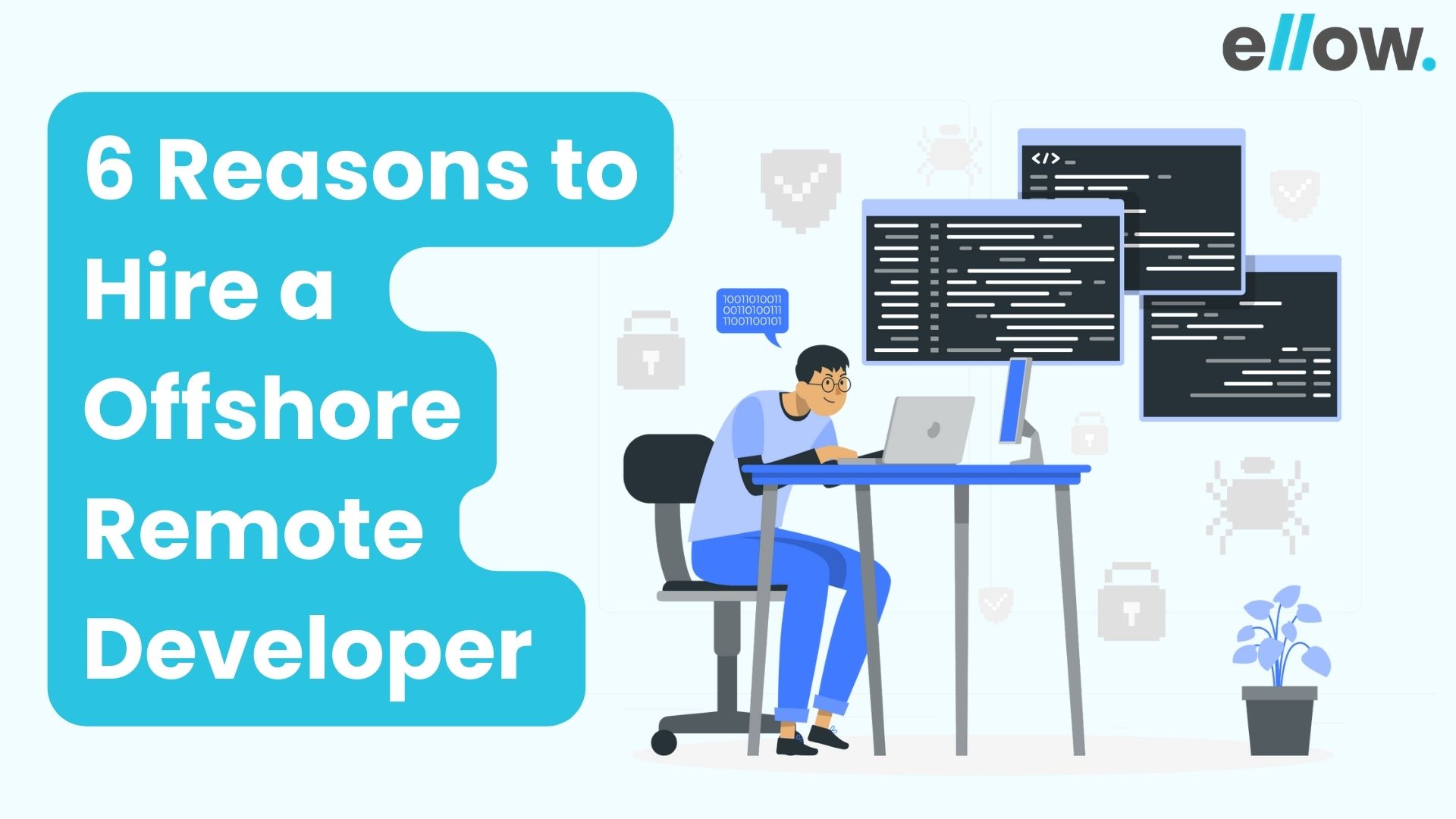The Stakes Are Higher Than Ever
In 2025, hiring a developer isn’t just about filling a seat — it’s about securing the future of your product. With new technologies emerging every quarter and competition for talent going global, making the right hire could mean launching on time, scaling faster, and building with confidence. Make the wrong hire, though, and you’re looking at missed deadlines, rising costs, and frustrated users.
Whether you’re a startup founder, tech lead, or product owner, this guide will walk you through how to hire remote software developers, why India continues to dominate the offshore hiring landscape, and how the best IT staffing agencies are changing the hiring game in 2025.
Remote Developer Hiring in 2025: What’s Changed
If you’re still relying on old hiring playbooks, it’s time to update your strategy. The rules have shifted.
Global talent is the default
In 2025, companies aren’t just open to remote talent — they’re structured for it. According to Gartner, nearly 60% of engineering teams are now fully or mostly remote, with distributed models delivering 24/7 productivity and access to niche skills across borders. This shift has made it easier than ever to hire remote software developers from anywhere in the world.
Skill-first, not location-first
The new mantra is: hire for capability, not postcode. Tools like GitHub Copilot, AI-driven testing platforms, and asynchronous workflows have made it possible to collaborate smoothly across time zones. As a result, remote software developers who show results are more in demand than ever — no matter where they sit.
Time-to-hire is tighter
Today’s developers have options. If your hiring process takes more than 2-3 weeks, you’re likely losing top talent to competitors. The best companies looking to hire remote software developers in 2025 streamline decision-making, technical evaluations, and onboarding to win the best people quickly.
AI is reshaping the hiring funnel
From AI-powered sourcing tools to automated skill-matching platforms, artificial intelligence is now deeply embedded in recruitment workflows. Smart companies use AI to pre-screen resumes, assess technical fit, and even evaluate communication skills. This has made it faster than ever to hire Indian developers and match them with global teams efficiently.
Candidates expect employer transparency
Today’s developers are choosier. They look beyond salaries to assess a company’s culture, tech stack, remote policies, and growth opportunities. Glassdoor reviews, LinkedIn activity, and even how quickly you respond during the process influence whether a candidate says yes. In 2025, it’s not just about finding remote software developers — it’s also about being the kind of company the right developer wants to work for.
Why Indian Developers Are the Backbone of Global Tech Teams
India’s position in the developer economy has only grown stronger. Here’s why tech leaders continue to hire Indian developers to build and scale their remote teams:
A deep, fast-growing talent pool
India produces over 1.5 million engineering graduates every year, many trained in the latest technologies like AI, full-stack development, blockchain, and cloud-native architectures. Whether you need a React developer or a Kubernetes-certified engineer, you’ll likely find one in Bangalore, Pune, or Hyderabad.
Global mindset, English proficiency
Most Indian developers are used to working with Western clients and teams. They understand agile, Scrum, and remote collaboration tools like Slack, Jira, and Notion. Communication is rarely a barrier.
Cost-effective without compromise
You’re not just saving costs by hiring from India — you’re reallocating the budget. The same budget that hires one mid-level engineer in the U.S. might get you two senior engineers offshore. It’s why even well-funded startups and enterprises now look at offshore developer hiring in India not just as a stopgap, but as a long-term strategy to hire remote software developers at scale.
24/7 development cycle
Working across time zones doesn’t just mean delays — it means continuity. Many companies now follow a “follow-the-sun” development model, handing off progress from India to Europe to the U.S., and back again.
Thriving startup and open-source culture
India’s developer ecosystem isn’t just built on outsourcing — it’s also buzzing with innovation. From contributing to major open-source projects to launching globally relevant startups, Indian developers are increasingly taking ownership, showing product thinking, and demonstrating entrepreneurial mindset.
Pro tip: Consider hiring a tech lead locally, and building your core team remotely in India. You get local accountability with global execution.
What to Look for in a Remote Developer
Hiring remote software developers requires more than checking a tech stack. You’re looking for people who can solve problems independently, communicate clearly, and integrate seamlessly with distributed teams. Here are seven must-have traits to look for in 2025 — each more critical than ever:
Proven Project Experience
Forget buzzwords. A strong remote developer has hands-on experience solving real-world challenges. Look for GitHub repos, live apps, client references, or case studies. Great developers don’t just write code — they understand how their code impacts users and business goals.
Self-Discipline:
Remote work thrives on autonomy. A good developer doesn’t need constant nudging to stay on track. Instead, they proactively manage their calendar, communicate delays early, and hit deadlines consistently. This kind of reliability is especially important when you’re in different time zones or working asynchronously.
Strong Communication:
In a remote setting, clarity outweighs charisma. The ability to explain technical ideas in writing or during a stand-up call is crucial. Look for candidates who document their code well, ask thoughtful questions, and respond clearly in chats or project management tools — it’s often a make-or-break factor in distributed teams.
Time Zone Overlap:
You don’t need a full overlap, but a few shared working hours each day can make a huge difference in collaboration. Whether it’s for daily check-ins, sprint planning, or pair programming, having even 2–3 hours of real-time availability helps keep things moving smoothly.
Tool Agility:
The ideal hire isn’t rigid about tools. They should be able to jump into your ecosystem — whether it’s Jira, Trello, Notion, Linear, GitLab, or ClickUp — without a steep learning curve. A developer’s comfort with adjusting to your tech stack can save weeks of onboarding friction.
Problem Solving Skills:
Beyond technical know-how, assess how they handle incomplete specs or unexpected bugs. Give them scenarios during interviews that mimic real-world uncertainty. Great remote developers don’t wait around to be told what to do — they ask questions, propose solutions, and move forward.
Cultural Compatibility:
Remote teams each have their own rhythm, communication styles, and norms. Some move fast and break things, others prioritize process and documentation. The right hire should mesh well with your team’s tone, decision-making speed, and values. It’s not just about productivity — it’s about belonging.
Should You Hire Directly or Use an IT Staffing Agency?
Once you know what kind of developer you need, the next decision is how to bring them on board. This depends on your bandwidth, hiring urgency, and comfort with global hiring logistics.
Option 1: Hiring Directly
If you have in-house recruiters or a globally experienced HR team, direct hiring can work — especially for long-term, full-time roles. But if you’re short on time or unfamiliar with international compliance, this can become a bottleneck when trying to hire remote software developers quickly.
Option 2: Partnering with an IT Staffing Agency
Staffing partners make sense when speed, scale, or specialization is needed. A good IT staffing agency brings pre-vetted talent, shortens the hiring cycle, and ensures a smoother process from interview to onboarding.
Consider platforms like ellow — built to connect businesses with experienced, remote-ready Indian developers. What sets ellow apart is its hybrid approach: combining smart tech with rigorous talent screening. It’s more than just a matchmaking tool — it’s a structured way to build reliable, remote-first teams without second-guessing every hire.
Option 3: Start Direct, Then Scale with a Partner
Many companies begin by hiring their first few developers directly, then switch to working with a staffing partner once they need to grow quickly or cover more ground. This hybrid approach lets you build trust in the process before handing off control.
Option 4: Use Agencies for Specialized or Hard-to-Fill Roles
Some roles — like DevOps, machine learning, or low-latency backend development — require very specific experience. In these cases, a niche-focused staffing partner can help you find talent that would be tough to locate or evaluate on your own.
How to Choose the Right Staffing Partner
Not all agencies are created equal. Here’s what to look for when selecting the best IT staffing agency for your needs:
- Niche expertise: Do they specialize in tech and understand your stack?
- Transparent pricing: Are there hidden markups?
- Speed + quality: Do profiles match your brief within days?
- Legal support: Do they handle global compliance?
Post-hire support: Do they help onboard and manage developers too?
If you’re hiring in India, choose agencies with a strong developer reputation and a local presence. A trusted IT staffing agency attracts top-tier talent — which is exactly what your business needs to grow.







